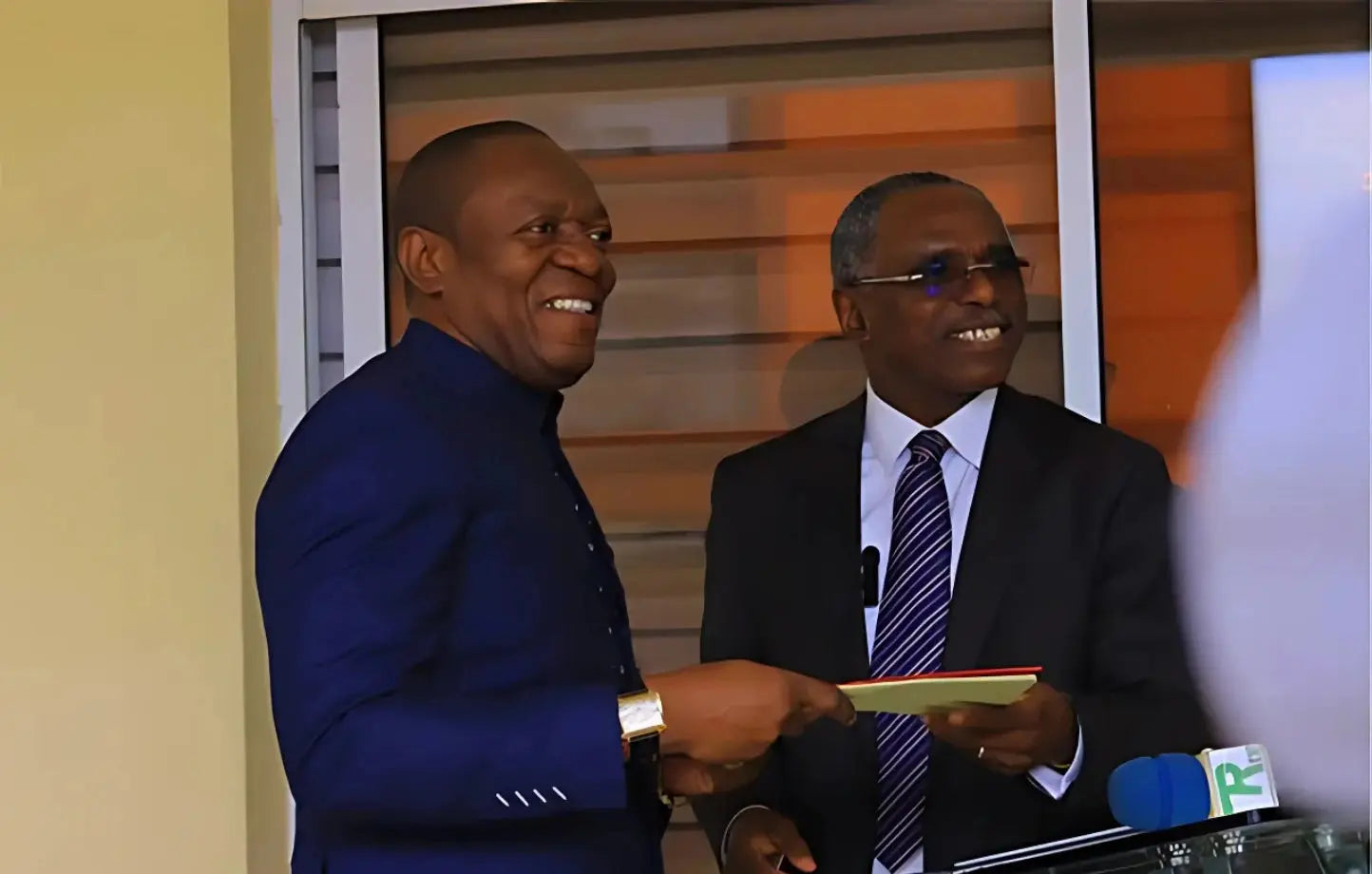
François Ndong Obiang dismissed from Réagir for supporting the “yes” vote in the referendum, between corruption and ethnic favoritism
The Gabonese party Réagir is going through a major crisis after the dismissal of its president François Ndong Obiang. Accused of unilateral decisions and controversial support for the constitutional referendum proposed by the head of the transition, Oligui Nguema, Ndong Obiang faces criticism from his own Executive Bureau, which openly disavows him.
Support for the referendum that angered the Executive Board
On October 24, 2024, an official video released by the Réagir party revealed the internal fracture within this Gabonese opposition political party. The party's Executive Bureau, led by Guy Roger Aurat Reteno, officially dismissed François Ndong Obiang, accusing him of treason for supporting the constitutional referendum. This decision was taken following a series of initiatives that the Bureau deemed "unilateral" and incompatible with the values of the party, which had adopted a position of neutrality towards the Committee for the Transition and Restoration of Institutions (CTRI) led by Oligui Nguema.
Tensions had started earlier when Ndong Obiang publicly declared his support for the referendum, a position at odds with the opposition of React to the initiatives of the current transition. Deputy Executive Secretary Joseline Afouari Obouono notably stressed in the statement that Ndong Obiang, without consulting the Bureau, had supported the constitutional reform that was still not public at the time, an act perceived as a personal position contrary to the party's statutes.
Accusations of ethnic influence and corruption
Ndong Obiang's decision has raised questions beyond Réagir, particularly regarding his personal and ethnic motivations. Indeed, some observers believe that his belonging to the Fang ethnic group, the majority in the country, and also that of Nguema, may have played a role in this unexpected support.
In addition, there are rumors of a possible “buyout,” with allegations of corruption against Ndong Obiang, who allegedly accepted financial benefits in exchange for his position. Although unproven, these allegations of corruption and ethnic allegiance reflect a broader debate about the influence of community affiliations in Gabonese politics.
React, a party at the crossroads
This crisis within Réagir raises the question of the party's ability to remain coherent and assert itself as a credible opposition to the government. By excluding Ndong Obiang, the Executive Bureau hopes to restore the confidence of its supporters and guarantee its independence from external influences, particularly that of the CTRI. The next steps remain to be defined, but the party is considering taking legal action to regularize some of the former president's actions, while calling on its members to exercise restraint and to rally behind official decisions emanating from headquarters.
This upheaval leaves the party at a crossroads: restore discipline or risk losing credibility as a coherent opposition. The leadership of Réagir hopes to turn the page on this internal division and return to its initial role as a counter-power within Gabonese politics.


